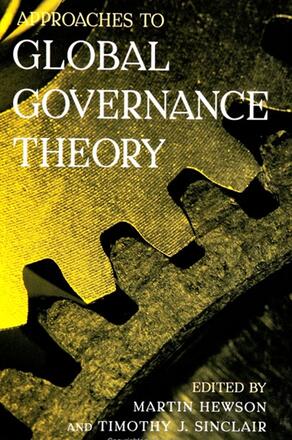
Approaches to Global Governance Theory
Alternative formats available from:
Showcases diverse theoretical approaches in the emerging area of global governance.
Description
As the debate over global governance heats up, Approaches to Global Governance Theory offers a guide to this new terrain. The contributors advocate approaches to global governance that recognize fundamental political, economic, technological, and cultural dynamics, that engage social and political theory, and that go beyond conventional international relations theory. We are offered here a guide to this new terrain.
Beginning with a chapter tracing the emergence of global governance analysis in the 1990s, Approaches to Global Governance Theory also responds to alternative theoretical conceptions. James N. Rosenau explores the ontology of global governance. In addition, Robert Latham develops a critique of Rosenau's thinking, while Michael G. Schechter examines the limits of the Commission for Global Governance's widely-publicized 1995 report and Ronen Palan asks critically, "Who is to be governed by global governance?"
Other chapters develop analyses of global governance phenomena. Technological change is addressed by Karen T. Litfin, on environmental satellites, and Edward A. Comor, on broadcast satellites. M. Mark Amen examines developments in credit, and shifts in political identity are mapped by Yale H. Ferguson and Richard W. Mansbach. Also, developments in information and knowledge are considered by Tony Porter.
In addition, chapters advocate new directions for global governance analysis. Timothy Sinclair suggests a focus on the level of the commonplace, Martin Hewson proposes long-term analysis of world order informationalism, and Ronnie D. Lipschutz makes a case for the importance of global civil society.
Martin Hewson is an Associate at the York Centre for International and Security Studies (YCISS), York University, Toronto. Timothy J. Sinclair teaches International Political Economy at the University of Warwick in England and is External Associate at YCISS.
Reviews
"What I like most is the diversity of well-argued positions about 'global governance' that the book includes. Both as a concept and as a phenomena, 'global governance' is highly contested, and this book reflects that contestation." — Craig N. Murphy, Wellesley College
"…offers genuine insight into the subject of global governance." — Canadian Journal of Political Science